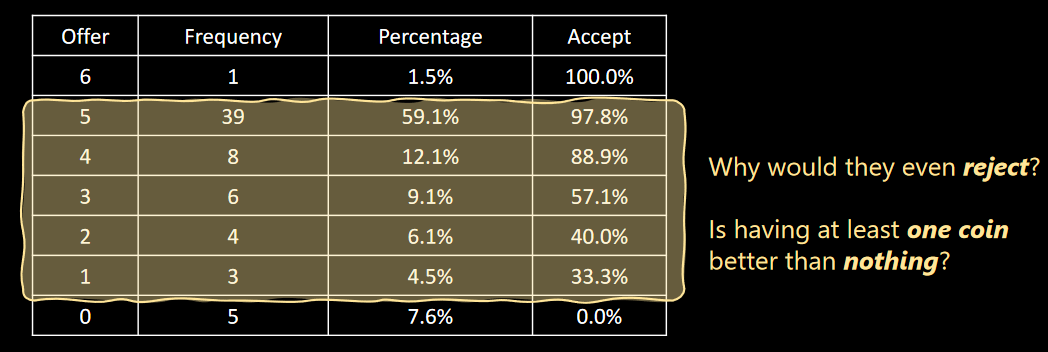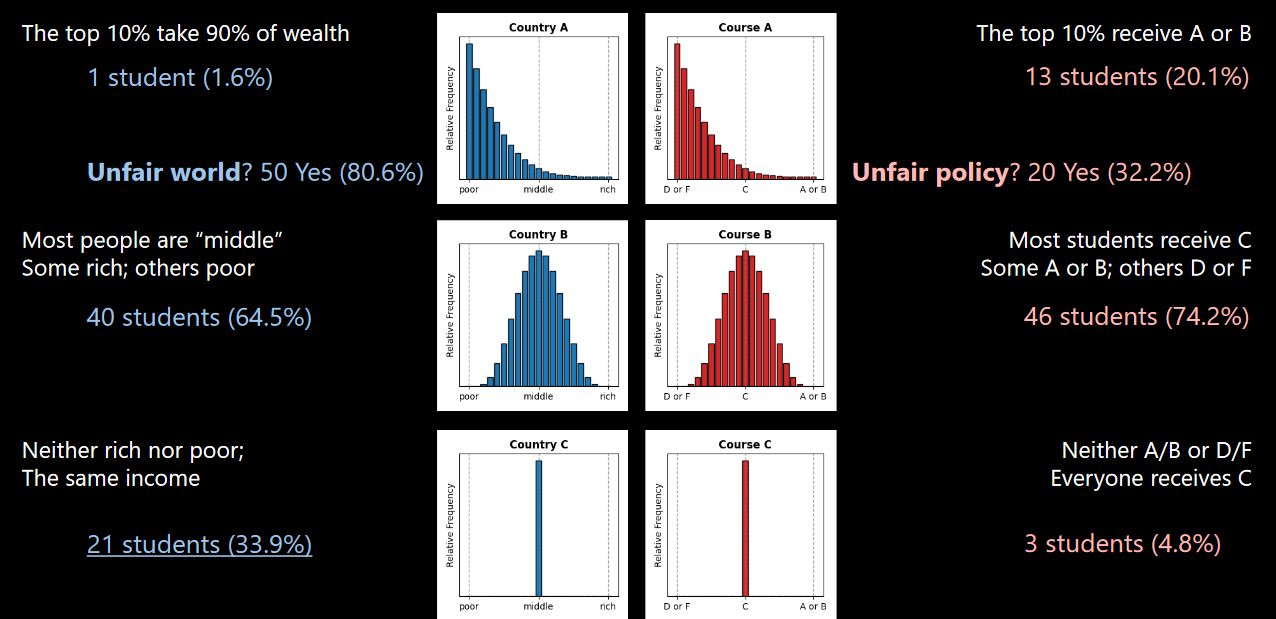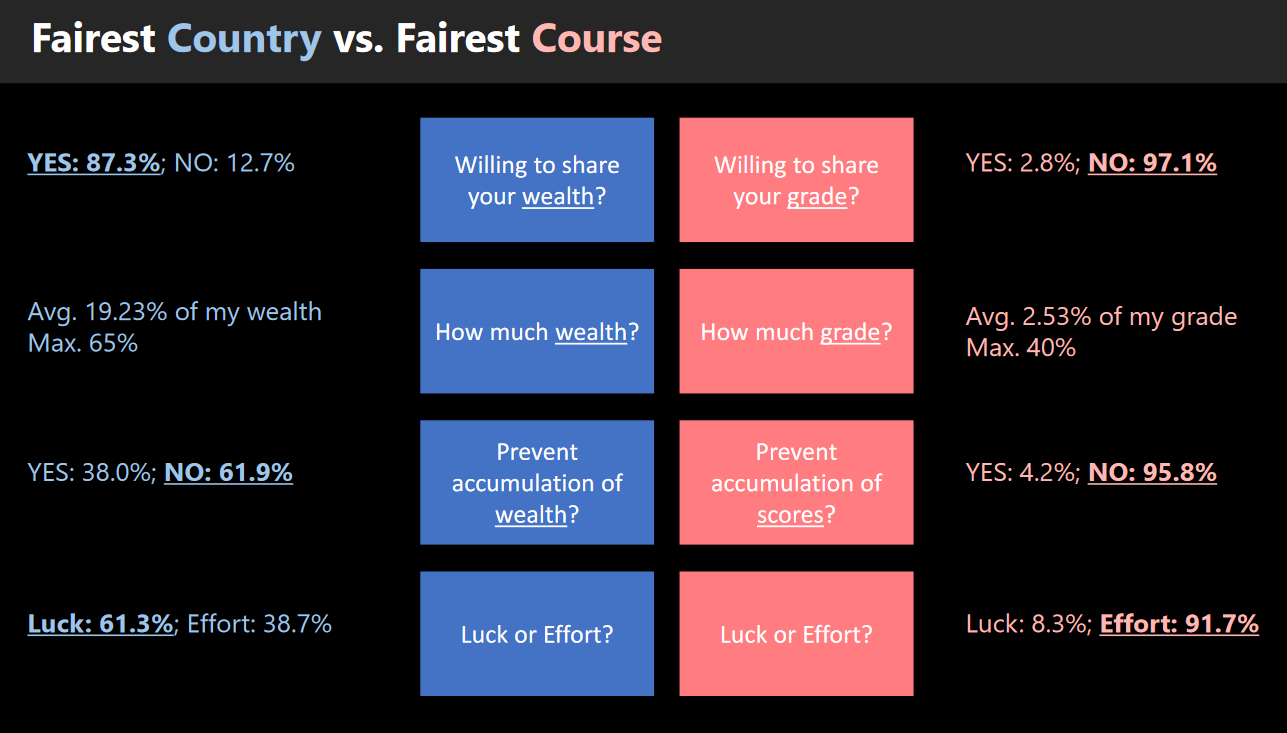Topic 7 Justice, Fairness, and Morality

Figure 7.1: Outcomes of Coin Game
What is interesting is that in a previous game that was played last week, the people in the middle still chose to reject the offer even though they would at least get one coin.

Figure 7.2: Outcomes of Previous Week’s Fairness Experiment

Figure 7.3: Outcomes of Previous Week’s Fairness Experiment
We also have some outcomes of last week’s experiments.
7.1 Ultimatum Game
The ultimatum game is an experimental economic game that investigates human behavior in economic decision-making situations. It typically involves two players: a proposer and a responder. The proposer is given a sum of money and proposes how to split it with the responder. The responder can either accept or reject the proposed division. If the responder accepts, both players receive the proposed amounts. If the responder rejects, neither player receives anything.
The game is interesting because from a purely rational perspective, the responder should accept any positive offer since it is better than receiving nothing. However, in many experiments, responders tend to reject unfair offers, especially if they perceive them as unjust or inequitable. This behavior has been interpreted as evidence of a preference for fairness and a willingness to punish perceived unfairness, even at a personal cost. The ultimatum game is widely used to study social preferences, reciprocity, and notions of fairness in economic decision-making.